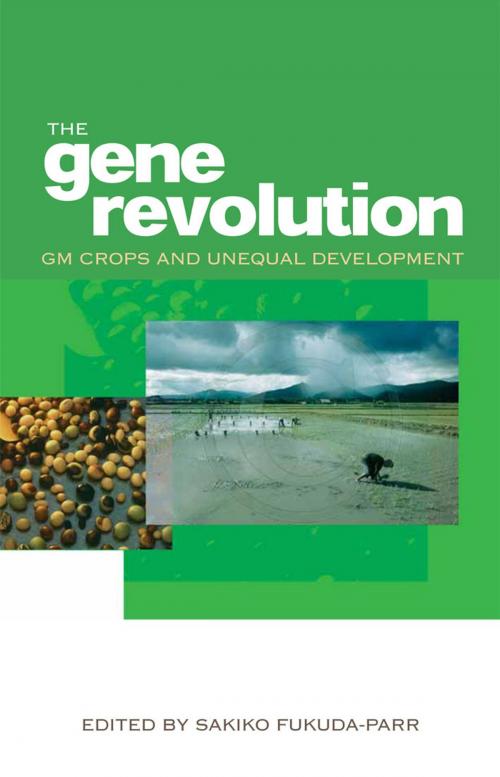The Gene Revolution
GM Crops and Unequal Development
Nonfiction, Science & Nature, Technology, Agriculture & Animal Husbandry| Author: | ISBN: | 9781136553844 | |
| Publisher: | Taylor and Francis | Publication: | April 27, 2012 |
| Imprint: | Routledge | Language: | English |
| Author: | |
| ISBN: | 9781136553844 |
| Publisher: | Taylor and Francis |
| Publication: | April 27, 2012 |
| Imprint: | Routledge |
| Language: | English |
Whether or not to embrace GM technologies is a fundamental and politically charged question facing humanity in the 21st century, particularly in light of rapidly growing populations and the unknown future impacts of climate change. The Gene Revolution is the first book to bridge the gap between thenaysayers andcheerleaders and look at the issues and complexities facing developing and transitional countries over decisions about GM in light of the reality of what is happening on the ground. The first part of the volume looks at the rise of GM crops, commercialization and spread of the technology and the different positions of the USA and the European Union on the GM question and the effect of global markets. The second part consists of country perspectives from Argentina, Brazil, China, India and South Africa, which provide insight into the profound challenges these countries face and the hard choices that have to be made. The final part takes the analysis a step further by comparing developing and transitional country experiences, and charts a future course for government policy on GM that supports growth, sustainability and equity for the many billions of people affected worldwide.
Whether or not to embrace GM technologies is a fundamental and politically charged question facing humanity in the 21st century, particularly in light of rapidly growing populations and the unknown future impacts of climate change. The Gene Revolution is the first book to bridge the gap between thenaysayers andcheerleaders and look at the issues and complexities facing developing and transitional countries over decisions about GM in light of the reality of what is happening on the ground. The first part of the volume looks at the rise of GM crops, commercialization and spread of the technology and the different positions of the USA and the European Union on the GM question and the effect of global markets. The second part consists of country perspectives from Argentina, Brazil, China, India and South Africa, which provide insight into the profound challenges these countries face and the hard choices that have to be made. The final part takes the analysis a step further by comparing developing and transitional country experiences, and charts a future course for government policy on GM that supports growth, sustainability and equity for the many billions of people affected worldwide.















